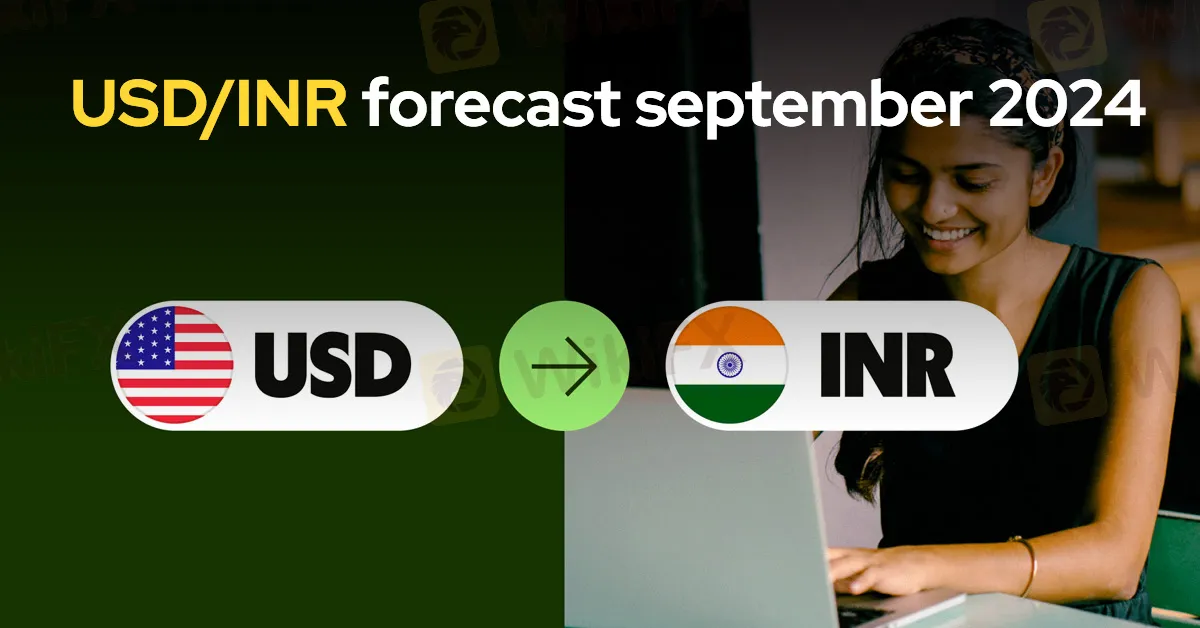简体中文
繁體中文
English
Pусский
日本語
ภาษาไทย
Tiếng Việt
Bahasa Indonesia
Español
हिन्दी
Filippiiniläinen
Français
Deutsch
Português
Türkçe
한국어
العربية
USD/INR Monthly Forecast: September 2024
Abstract:The USD/INR currency pair has exhibited significant volatility, staying near the higher end of its long-term price range. Since early March, the pair has consistently set new peaks and ventured into higher-price territories.

According to report, the USD/INR currency pair has exhibited significant volatility, staying near the higher end of its long-term price range. Since early March, the pair has consistently set new peaks and ventured into higher-price territories. On August 5th, the USD/INR briefly surged above the 84.1000 mark, driven by exaggerated reactions in the Asian markets to USD/JPY fluctuations and a selloff in Japan's Nikkei index. However, market stability quickly returned, and the pair settled back to more familiar values within a day.
Interestingly, after the rapid August 5th spike, the USD/INR did not revert to its previous price levels. Instead, the 83.7700 area lost its support, and the 83.8600 zone began to provide new support. This change persisted until around August 16th, when the pair tested slightly lower values. A notable low of 83.6820 was recorded on August 20th before it swiftly rebounded.
Mid-August Lows and Market Reactions
The mid-August low may have led some traders to speculate that the Reserve Bank of India (RBI) might soon alter its policies to strengthen the Indian Rupee. However, this did not materialize. Despite broader forex market trends showing USD weakness, the USD/INR has maintained its elevated price range. This behavior suggests that the RBI might be tolerating higher levels in the USD/INR, possibly to test market reactions or manage inflationary pressures.
Outlook for September
The persistence of the USD/INR near the 83.9000 level indicates more than just random fluctuations. It reflects a strategic stance by the RBI, potentially hinting at a higher price range tolerance for the pair. The Indian government may be balancing the benefits of a weaker Rupee—such as boosting export demand—with the inflationary consequences it brings. As September approaches, it remains to be seen whether the USD/INR will continue to test resistance levels or if the Indian government will take action to address the currency's strength.

Disclaimer:
The views in this article only represent the author's personal views, and do not constitute investment advice on this platform. This platform does not guarantee the accuracy, completeness and timeliness of the information in the article, and will not be liable for any loss caused by the use of or reliance on the information in the article.
Read more

Google Bitcoin Integration: A Game-Changer or Risky Move?
Google Bitcoin integration blends wallets with Google accounts, stirring security fears and adoption hopes. ZKP encryption aims for privacy.

Pi Network Mainnet Launch: Game-Changer or Crypto Controversy?
Pi Network’s Mainnet launch sparks debate. With 100M users, KYC compliance, and Binance listing rumors, will it redefine crypto accessibility?

Coinbase Urges US Lawmakers to Establish Clear Crypto Regulations
Coinbase calls for clear US crypto regulations to foster innovation, protect consumers, and ensure transparency in the digital asset industry.

Binance.US Resumes USD Deposits and Withdrawals After 19 Months
Binance.US resumes USD deposits and withdrawals via ACH transfers, marking a major milestone for the crypto exchange after regulatory challenges.
WikiFX Broker
Latest News
Germany's Election: Immigration, Economy & Political Tensions Take Centre Stage
WikiFX Review: Is IVY Markets Reliable?
IG 2025 Most Comprehensive Review
ED Exposed US Warned Crypto Scam ”Bit Connect”
Top Profitable Forex Trading Strategies for New Traders
EXNESS 2025 Most Comprehensive Review
Currency Calculator






